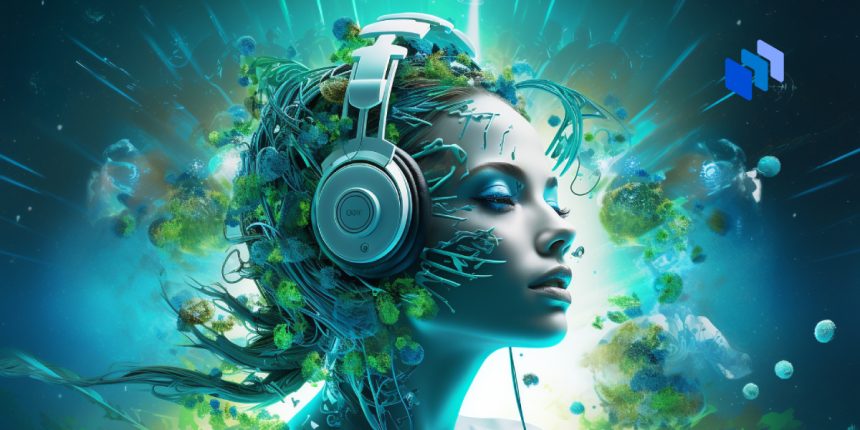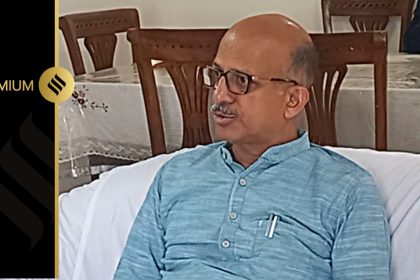Artificial intelligence in music is becoming a big deal, changing how things work in the industry.
Techopedia delves deeper into this phenomenon by chatting with Ava-May Rooney from Encore Musicians, who shared how AI is aiding in music creation and enjoyment. The discussion doesn’t end there; well-known songwriters and industry leads like Spotify’s Daniel Ek and Warner Music’s Robert Kyncl have also weighed in on the tech’s role in music.
This article dives into these diverse views, highlighting the exciting possibilities AI offers while also addressing concerns like the potential loss of emotional touch and copyright issues.
AI can bring a range of benefits for both musicians and listeners. It helps musicians come up with new tunes and makes personal playlists for listeners based on their tastes.
With its ability to quickly go through a lot of data, AI is like a hardworking assistant that can aid in event planning and protecting artists’ rights.
The benefits of AI in music are clear; it helps create new music and make concerts more accessible to everyone.
However, not everyone in the music sector agrees on how much AI should be used. The opinions vary, especially among songwriters and industry experts who have a deep understanding of both the art and business of music.
Interviews conducted by BBC Newsbeat revealed the opinions of top songwriters at the BMI London Awards. These writers, who’ve worked with stars like Doja Cat, Jonas Brothers, and BTS, had mixed feelings about AI in music.
They said AI can be helpful. Some use it to mimic an artist’s voice to test how a track might sound or to overcome creative blocks.
However, they all agreed on one thing: AI can’t match the human touch in music. Linden Jay, one of the writers for Doja Cat’s hit ‘Woman’, likes AI but doesn’t think it should replace human songwriting.
I’ve been using it a little bit in my writing just to help advance ideas. And, you know, I’m not the greatest singer in the world so sometimes I sing and I’ll turn it into a famous artist’s voice, just to get an idea of if something is headed in a good direction.
His co-writer, Aaron Horn, sees AI as a new tool, like a rhyming dictionary, that can help in the creative process.
Jessica Agombar, who wrote a hit for the Jonas Brothers, finds AI to be inspiring but prefers the raw feel of traditional songwriting.
Kamille, known for her work with Little Mix and Mabel, prefers to stay away from AI. She believes the emotion in songwriting is important and something AI can’t replicate.
I definitely feel like the key of songwriting is getting the emotion out from you and your heart. I think that’s a really important part that we shouldn’t lose as much as technology advances.
They all caution against relying too much on AI, especially for new artists. As Aaron puts it, embracing AI is fine, but the real essence of music comes from human experience, which AI can’t provide.
Spotify’s CEO, Daniel Ek, shared a careful optimism about using AI.
In a chat with BBC’s tech editor, Zoe Kleinman, he recognized AI’s ability to better music but insisted it shouldn’t be used to imitate artists without their permission.
Ek grouped AI music tools into three:
You can imagine someone uploading a song, claiming to be Madonna, even if they’re not. We’ve seen pretty much everything in the history of Spotify at this point with people trying to game our system.
Meanwhile, Warner Music CEO, Robert Kyncl, sees a big impact of AI in music soon.
At the 2023 Code Conference, he told the industry to welcome the tech, comparing it to user-uploaded content on YouTube, which once faced copyright issues but later became a big money-maker through tech like Content ID.
Look, you have to embrace the technology, because it’s not like you can put technology in a bottle…like the genie is not going back in.
Kyncl, with his YouTube background, aims to tackle rights issues for AI-created music, especially when it sounds like existing artists. He stressed the need for a system to handle these issues, noting efforts to figure out the details.
Kyncl also talked about working together with big platforms like YouTube, TikTok, and Spotify to set the rules for AI in music. He thinks music will see AI’s impact before TV and film, needing changes in the law to protect rights like copyright does.
Techopedia spoke to Ava-May Rooney, who highlighted the significant changes AI is bringing to the live music scene. According to Rooney, AI in music is aiding musicians in crafting, producing, and exploring their art in fresh ways, and is reshaping how fans interact with music by personalizing suggestions and streamlining event organization.
While AI is beneficial, Rooney stresses the importance of maintaining authenticity and the unique emotional bond that live music creates. They are tackling privacy and copyright issues to ensure AI’s ethical usage in the sector.
As the UK’s largest musician bookings platform, we’re excited to be part of this evolution, supporting musicians in navigating these changes while celebrating the enduring magic of live performances. AI is an incredible tool, but it’s the human touch that truly makes live music an unforgettable experience. Together, we’ll continue to strike that harmonious balance.
Techopedia also talked to music producer George Gretto, who stated that live performances are the heartbeat of what they do and that they fuel musicians’ creativity.
Now, with technology like AI, things are changing fast. We’re experimenting, trying out new sounds, and getting creative in ways we never imagined.
He highlighted concerns about possible job displacements in aspects such as music production but stated that:
We know that the heart of our craft will always be those live, unfiltered experiences with our fans.
The insights from songwriters, CEOs, and industry experts shed light on the positive changes AI can bring to the music sector. Yet, they also hint at challenges that shouldn’t be overlooked. This section explores the concerns tied to AI’s role in music.
From losing the emotional essence of music to facing privacy issues and job losses, the road to harmonizing AI with the soul of music has its bumps.
As the industry navigates the challenges, nearly 30% of entertainment industry professionals have reported that they, their team, or their company are either currently using generative AI (13%) or planned to (17%).
The integration of AI in music is opening up new avenues for creativity and personalized listener experiences.
However, it’s not without challenges. The diverse opinions from industry stakeholders highlight a mix of enthusiasm and caution. AI has a huge potential to bring fresh innovations in music, but the importance of maintaining the emotional core that characterizes music is fundamental.
As the industry ventures into this tech-driven terrain, finding a balanced path between the capabilities of AI and the uniquely human element in music is essential. Through collaborative efforts, the transition to AI could pave the way for new explorations while keeping the essence of music intact.



